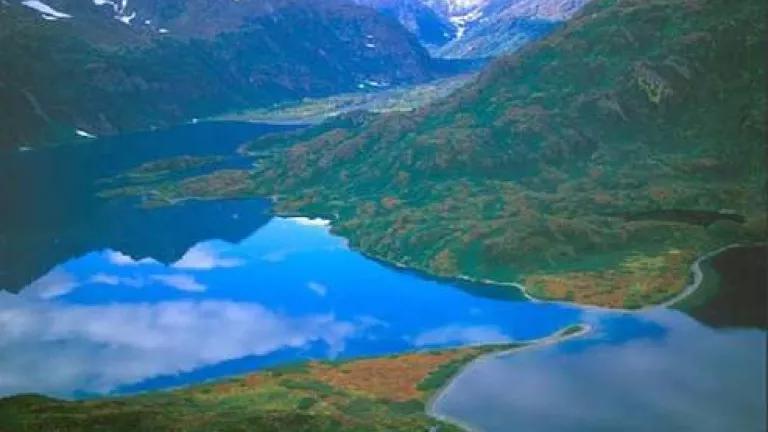
When discussing the value of preserving grizzly bears in the lower 48 states, Aldo Leopold once remarked, “Relegating grizzlies to Alaska is about like relegating happiness to heaven; one may never get there.” Many of us who live in the lower 48 understand what he meant since Alaska can seem a world away. But to the grizzlies and other wildlife that live there, Alaska IS heaven.
In southwest Alaska alone, the Bristol Bay watershed is one of the most biologically bountiful areas remaining in the United States. Imagine large and productive expanses of habitat – home to grizzly bears, bald eagles, gray wolves, wolverines, fox, mink, river otters and porcupines. An area so large that it supports caribou herds that have numbered over a hundred thousand individuals. Nearby Lake Iliamna hosts one of only two documented harbor seal populations worldwide to live year-round in a freshwater environment. And supporting the wildlife and native communities in the heart of this watershed is one of the most productive salmon fisheries in the world.
Heavenly, right? Not just for wildlife, but for outdoor enthusiasts of all kinds including the native communities that have relied on these resources for thousands of years.
Now imagine digging a giant open pit mine right in the middle of it.
As proposed, Pebble mine would be one of the largest copper and gold mines in the world – consisting of an open pit mine about 2 miles wide and 2000 feet deep, and an underground mine up to 5000 feet deep. As much as 10 billion tons of mine tailings would be produced – including wastewater and minerals containing toxic elements – which would be stored in perpetuity in tailings lakes covering at least 10 square miles. To create the tailing lakes, the mining consortium plans to build one of the largest earthen dams in the United States, taller than China’s Three Gorges Dam, permanently altering the region’s natural river drainage system. And mining itself would require dewatering of surrounding streams and tributaries, potentially destroying an estimated 60 miles of fish habitat in the largest intact sockeye salmon habitat left in the world. Contamination in the remaining waterways would threaten even more fish habitat and with the loss of these tremendous fisheries would come the loss of the grizzlies and other wildlife that rely on them for food.
Not so heavenly.
As part of our campaign to oppose the construction of Pebble mine, we are gathering signatures to deliver to the mine’s shareholders who will be meeting, believe it or not, on Earth Day. Take a minute to sign the petition, because if we are willing to allow for such massive destruction of the Bristol Bay watershed, we may as well be willing to relegate the last of our remaining wilderness to heaven.
